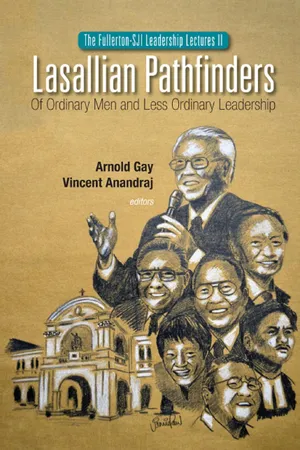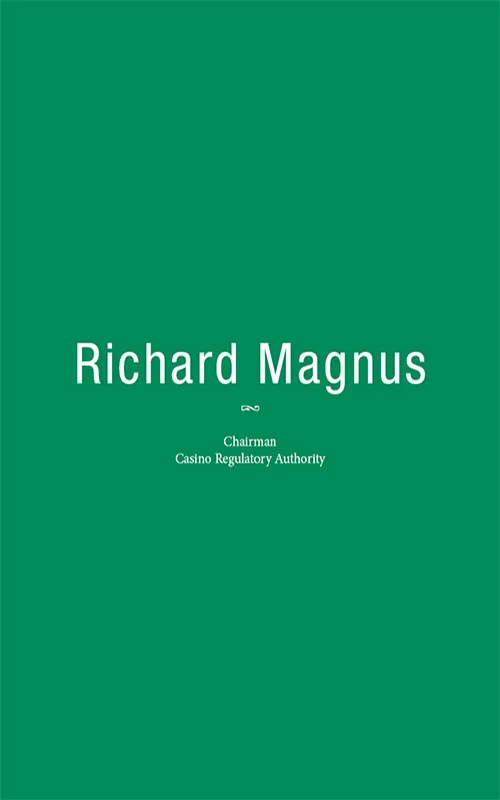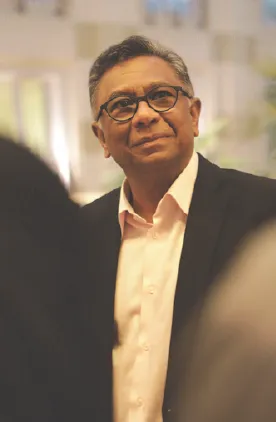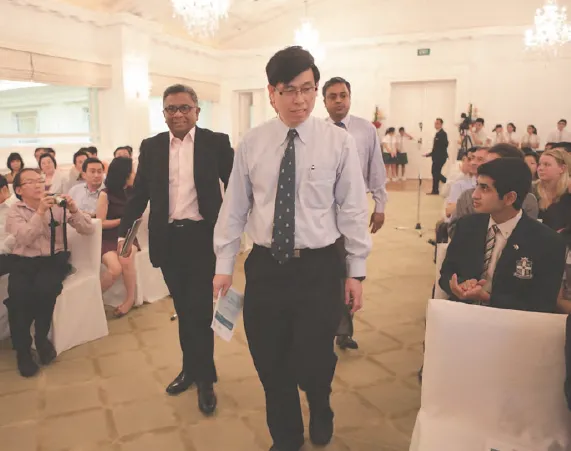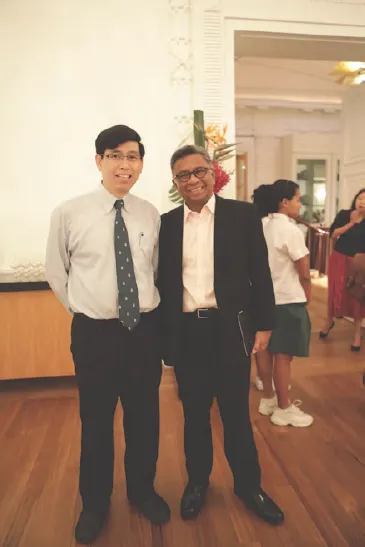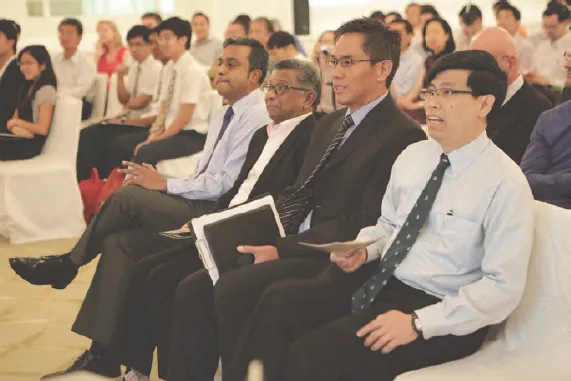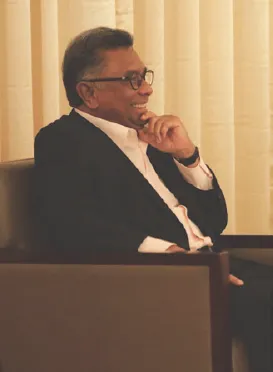![]()
Richard Magnus is an SJI Alumnus (1963). He is a recently retired Senior District Judge (now termed the Chief District Judge).
In recognition of his sterling contributions to the nation, he was conferred the Public Administration Medal (Silver) in 1983, the Public Administration Medal (Gold) in 1994, the Public Administration Medal (Gold) (Bar) in 2003 and the Meritorious Service Medal in 2009.
He holds several public positions: Singapore’s First Representative to the ASEAN Inter governmental Commission on Human Rights; Chairman, Casino Regulatory Authority; Chairman, Public Guardian Board; Chair man, Political Films Consultative Committee; Chairman, Bioethics Advisory Committee (BAC); and Member of the Public Service Commission; Member, Public Transport Council; and Expert Member of UNESCO’s International Bioethics Committee.
In the private sector, Richard sits on the Board of Directors of Temasek Cares PLC, CapitalMall Trust and the Changi Airport Group.
He has also edited five law books for legal practitioners. He is an Honorary Fellow of the Centre for the Study of Christianity, Trinity Theological College.
Richard initiated a community social and support programme for the citizens in South East Singapore which has been making good progress for some 12 years now. Richard is still busy being very active with social and welfare programmes in Cambodia and Indonesia; something he has been passionate about for several years.
SJI laid the foundation for his worship of God which reinforces and enriches his love of Singapore and respect for Singapore’s founding fathers and leaders.
Richard, who graduated with an LLB (Honours) and LLM from the National University of Singapore, is also an alumnus of the Harvard Business School (Advanced Management Program) and the John F. Kennedy School of Government (State and Local Government Program).
Effective and Ethical Leadership: My Experiences
I thought I would share with you today, in broad terms, the relationship between effective and ethical leadership. Can ethics and being effective be mutually reinforcing rather than be in conflict? Many eminent persons in this lecture series have spoken on effective leadership; so I will be more inclined on the ethics component. The central issue is not one of style. John Kotter (who taught me Leadership and Change at the Harvard Business School’s Program), in his book What Leaders Really Do, said that he conducted 14 formal studies and more than a thousand interviews. He often hears people say that we need a new leadership style for this century. In a globalising world with a better educated workforce and constituency that is no longer inclined to be seen and not heard, a new leadership is in fact called for, but style is not the key leadership issue. Substance is. It is about core behaviour on the job, not surface detail and tactics, a core that changes little over time, across different cultures, or in different industries or societies. Ethics, to me, is an essential core.
Being effective is about being able to influence others; to have an impact.
A large prerequisite of this is that you must have the power to do so. Remember now what Lord Acton said: power corrupts.
Being ethical is to recognise virtues which are worthy of honour and recognition by the community, such as integrity, citizenship, service and moral limits. Aristotle identified courage, justice, prudence and temperance as virtues of character. There is certain idealism in being ethical. These are habits of the heart. Remember now that leaders are humans.
To put the question in a raw form: Can the exercise of influential power and idealism go together? I will not refer to local cases or to the Enron case, or the BP case, or to the banking crisis in the US. They make great case studies for this subject, but you would have heard of them, and I thought I should not replicate.
As I read out Percy Shelley’s (1792– 1822) Ozymandias, try and relate his poem to the subject of effective and ethical leadership.
The next illustration is a familiar one: David and Goliath. David defeated Goliath and saved Israel, but later as king, he seduced Bathsheba and deliberately sent her husband to certain death in battle. That was effective but unethical.
Consider now the embryonic stem cell research. I chair the BAC [Bioethics Advisory Committee] now; I chaired the sub group that dealt with the ethical issues of this research. The contemporary issues then were with reproductive cloning, therapeutic cloning and regenerative medicine. The broader national context is this: Singapore wants to be among nations that are at the forefront of biomedical research but it must practice good science.
Embedded in this research is the moral status of the developing foetus. One view is that it is a person from the moment of conception, and therefore the research is wrong. But what if it involves the treatment of your very sick infant child? Another view is that the research can be for the common good in saving lives, healing diseases.
Conflicting? Can you mutually reinforce the progress of science and the ethics? Consider another scenario. I am Singapore’s Representative to the ASEAN Intergovernmental Commission on Human Rights. One issue is whether the exercise of human rights and freedoms “shall be subject … to such limitations as are determined by law … for the purpose of securing the recognition and respect for the rights and freedoms of others and of meeting the just requirements of morality, public order and general welfare…” Examples of the human rights are these:
All human beings are born free and equal in dignity and rights.
Everyone has the right to life, liberty and security of person.
All are equal before the law and are entitled without discrimination to equal protection of the law.
These are serious civil and political rights. In human rights discourse, these are first generation rights.
There are ten ASEAN nations involved. One school of thought is: you cannot take away fundamental human rights under any circumstances. We shall call this the first school of thought, just as a reference point for our discussion. The other school of thought is that the exercise of human rights, even fundamental freedoms, must be subordinated to certain prescribed state-sanctioned principles of public interest or the public good. We shall call this the second school of thought accordingly.
Underlying this debate is the organising principle of our society which is the primacy of the State, assuming, of course, the proper exercise of its powers. Would the first school of thought then dismantle this vital organising principle of our society? What weight do we then give to state sanctioned acts, in this case, qua human rights. That is at the macro level. At the practical level, if one needs to influence the first school of thought, would the ethical value of human flourishing which underlies fundamental freedoms be proscribed?
And while on the subject of state-sanctioned acts, we need to remember that Hitler’s programs were state sanctioned too but we would say they were morally bad. Was he effective? Initially yes, but when he led his followers to disaster, that rendered him ineffective. In more contemporary times, so also was Saddam Hussein. Saddam Hussein effectively led Iraq to nationhood, but we would say that he was brutal and brought harm to his people. I was in the former Yugoslavia recently and heard from the officials of the stories of Slobodan Milosevic, who became the President of Serbia and then of the Federal Republic of Yugoslavia. He was tried at The Hague for war crimes, for his involvement in the Bosnian Genocide. He died in the course of his trial.
But where would you put Bill Clinton?
This would then lead me to the next matter: judging effectiveness and ethics in leadership.
Here I am guided by Joseph Nye, in his book, The Powers to Lead. He says this:
Let me relate Joseph Nye’s clear analysis to the clearance of the backlog of a few thousand cases at the Subordinate Courts when I took office as the Senior District Judge in 1991. You have no doubt heard of the aphorism: Justice delayed is justice denied.
The goal was to clear the backlog of cases, which had been in the Courts’ dockets for some years. Remedies sought must be considered without undue haste; liberties of accused persons must be decided promptly. The ethical goals are certainly commendable if effective goals recognised the transactional realities of the processes; the various litigating parties, the public agencies.
The means to do this were to reallocate scarce resources, like night court, a...
